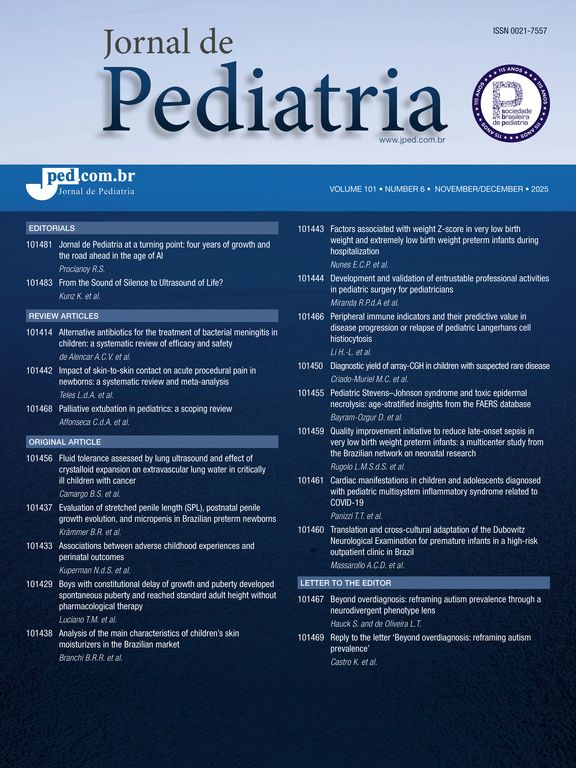
To review current information concerning the importance, pathophysiology, clinical presentation, and treatment of chronic constipation in Pediatrics.
MethodsBibliographic review of Medline database and articles published by the authors.
ResultsConstipation is a common disorder in childhood. The pathophysiology of constipation involves the interaction of several factors: low-fiber diet, early weaning, painful bowel movement, fecal retention, disturbance of intestinal motility, and genetic predisposition. The clinical presentation of children with constipation is variable. Several patients present the onset of constipation during the 1st year of life; however, the medical treatment is usually initiated only after a long period. Some patients are recognized due to the presence of complications, such as soiling, abdominal pain, and urinary abnormalities. The treatment should be adapted to each patient, and includes general orientation, complete colonic emptying, maintenance treatment, and a behavioral program to regulate bowel habits. Regardless of the fact that most children present functional chronic constipation, much attention should given to the entities that constitute the differential diagnosis. Specialized evaluation and diagnostic techniques should be indicated according to the patient s individual characteristics and when the clinical evolution is not satisfactory.
ConclusionsThe long-term control of chronic constipation depends on the acquisition of dietary habits that provide an adequate intake of dietary fiber. It is possible that a high-fiber diet is important not only to the control of constipation, but may also reduce the risk for diet-related chronic diseases during adulthood.
Revisar os conhecimentos atuais sobre impacto, fisiopatologia, apresentação clínica e tratamento da constipação crônica em Pediatria.
MétodosForam utilizados revisão bibliográfica eletrônica na base de dados do Medline-Bireme, artigos recentes de revisão e publicações prévias dos autores.
ResultadosA constipação crônica na infância apresenta elevada prevalência. A fisiopatologia envolve a interação de múltiplos fatores: dieta pobre em fibras, desmame precoce, episódios de evacuação dolorosa, comportamento de retenção fecal, distúrbio da motilidade intestinal e predisposição genética.
ComentáriosAo que tudo indica, o controle da constipação, a longo prazo e na idade adulta, depende da incorporação de hábitos alimentares que proporcionem quantidade adequada de fibra alimentar que pode ser importante, inclusive, para melhorar as condições gerais de saúde e ajudar a prevenir a ocorrência futura de outras doenças.








